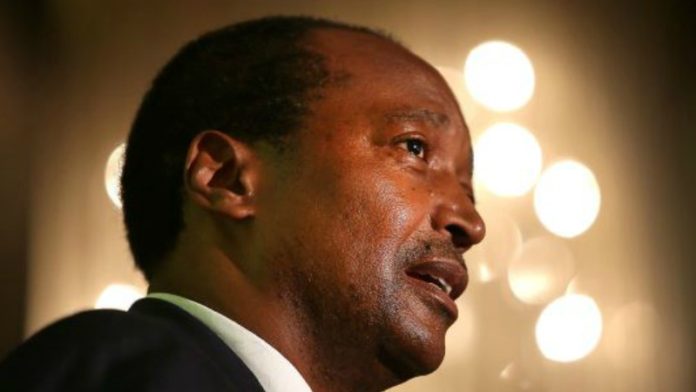
AFRICAN Rainbow Management (ARM) management expects it will take two to three years before Transnet Freight Rail (TFR) gets back to railing at nameplate capacity on the key iron ore and manganese lines.
In its assessment, ARM carefully avoided undue criticism of the state-owned entity which monopolises the country’s rail networks.
That became clear at Monday’s presentation of ARM’s interim results for the six months to end-December with executive chairman Patrice Motsepe choosing his words carefully in response to a series of questions on the group’s interaction with Transnet and its role in the current negotiations underway between the mining industry and Transnet.
Nonetheless, he took issue with Transnet CEO Portia Derby who last year stated that spare capacity on the various commodity rail lines would allocated – as a strategic priority – to emerging black miners to address the lingering historical imbalances in the economy.
Said Motsepe: “We want new entrants but the strategy clearly has to be to create new capacity and expand the infrastructure rather than diminish the capacity for those who are currently exporting and have invested huge amounts for increased exports.
“These are really the strategies that are in the interests of the country, the new entrants and the industry. It’s self explanatory.”
Asked about the negotiations underway between the mining industry and Transnet, Motsepe replied: “Behind closed doors there are very hard and serious discussions taking place and that’s why in the public domain it is critically important to overemphasise the commitment for results.
“We have found over the years you don’t solve the problem by making pronouncements in public which may be factually correct in relation to deficiencies and poor performance in parastatals.”
But that was the policy followed by the Minerals Council for nearly 15 years during which time executives maintained that “good progress” was being made in negotiations behind closed doors, but they could not talk about it.
The reality was the industry was being stonewalled by government which was paying lip service to the issues raised.
The penny only dropped for the mining companies with the debacle over the revised mining charter proposed by former mines minister Mosebenzi Zwane and, more recently, the shortcomings of Transnet which has cost the mining companies tens of billions of rands in foregone revenues.
The Minerals Council refused to deal at all with Zwane – who was replaced by current mines minister Gwede Mantashe – and in December last year called for the removal of Derby.
Motsepe added that in the current negotiations “there’s a commitment on the government’s side but we need more than commitment. We need results. But we need to give hope and stay on the positive side.”
Progress
Motsepe pointed out that the world class rail networks operating in Australia and Brazil were privately owned.
So far attempts by the South African mining companies to set up private/public partnerships to run the railway lines or for them to be concessioned to the private sector have been rejected by Transnet.
Andre Joubert, head of ARM Ferrous, commented: “Good progress is being made and there have been very positive engagements with the Transnet management team.
“I am hopeful there is going to be an improvement in output and I am not basing my hope on just because I want to be positive but on the actual results that I am seeing.”
Asked about initiatives to privatise the railway lines Joubert replied: “We know what happened to one of our other big iron ore producers in terms of privatising that line but we are still engaging with Transnet.
“There are many possible permutations in terms of improving the output and working together. We continue to negotiate with Transnet in this regard both on iron ore and manganese.
“We had a meeting a week ago – as the manganese producers – with the CEO of Transnet and that meeting was very positive in terms of working together and maybe finding a solution to funding some of these projects that we need to improve the output of South Africa’s iron ore and manganese exports.”










